Although sweet potato is often juiced for its nutrients, it's also a lesser known source of subtle creaminess in terms of both flavor and texture. I won't pretend this orange, carrot, and sweet potato juice tastes like dessert, but it really does have an undertone of creamsicle. Here's how to make it.
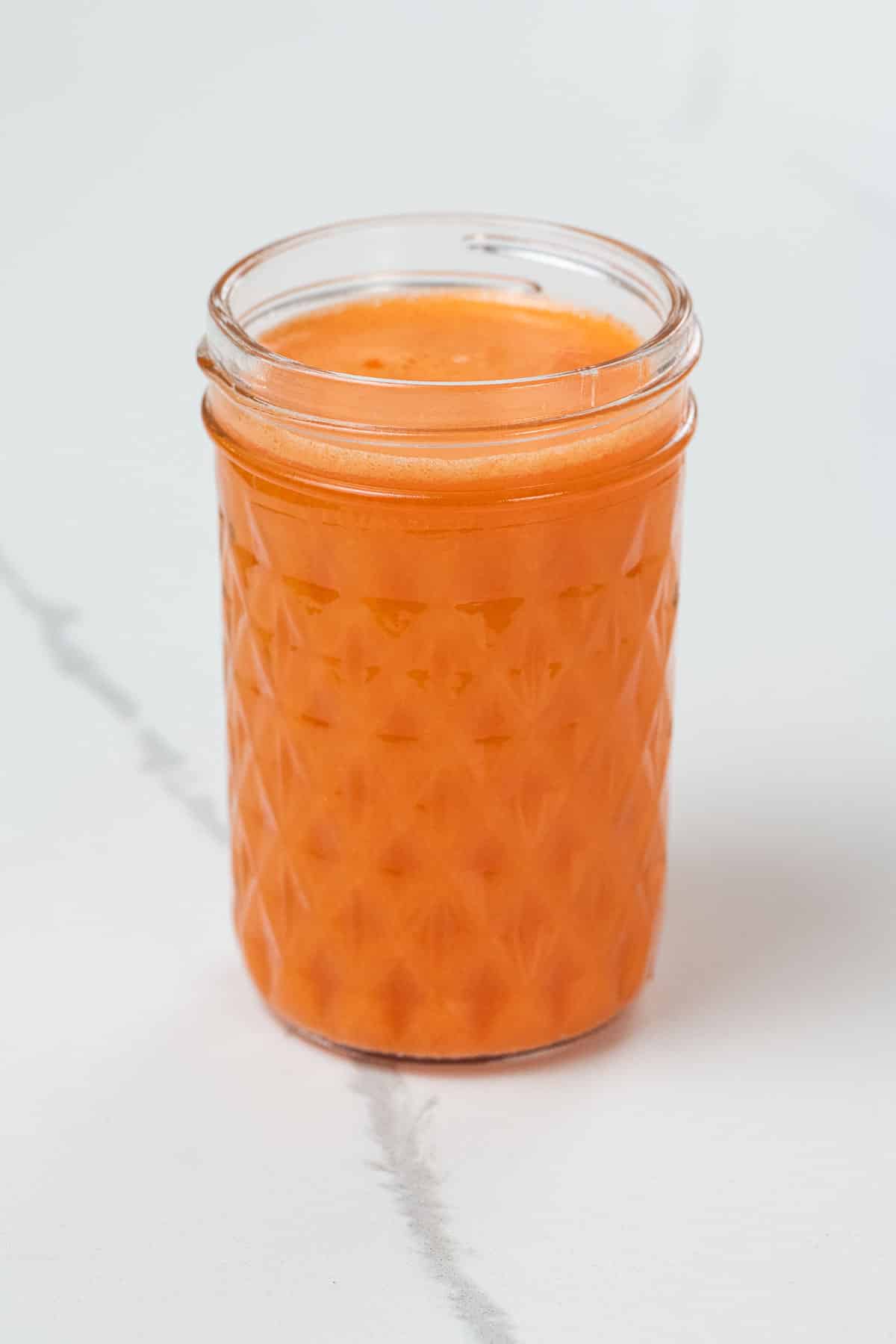
Why we love this recipe
When juicing a lot, I tend toward lower-glycemic options like my favorite green recipes. But sometimes it's really lovely — not to mention rich in diverse nutrients like beta carotene, if you're into that sort of thing — to mix it up a bit with small servings of sweeter fresh juices. This sweet potato juice blend has:
- Beautifully balanced flavors
- A vibrant color and attitude
- A slightly creamy texture
- Lots of rejuvenating micronutrients
I first published this recipe here and in my column on Serious Eats way back in 2014. I've since updated the post for clarity and scaled the quantities for a single serving, but the recipe otherwise remains the same.
What you'll need
Here's a glance at the ingredients you'll need to make this recipe.
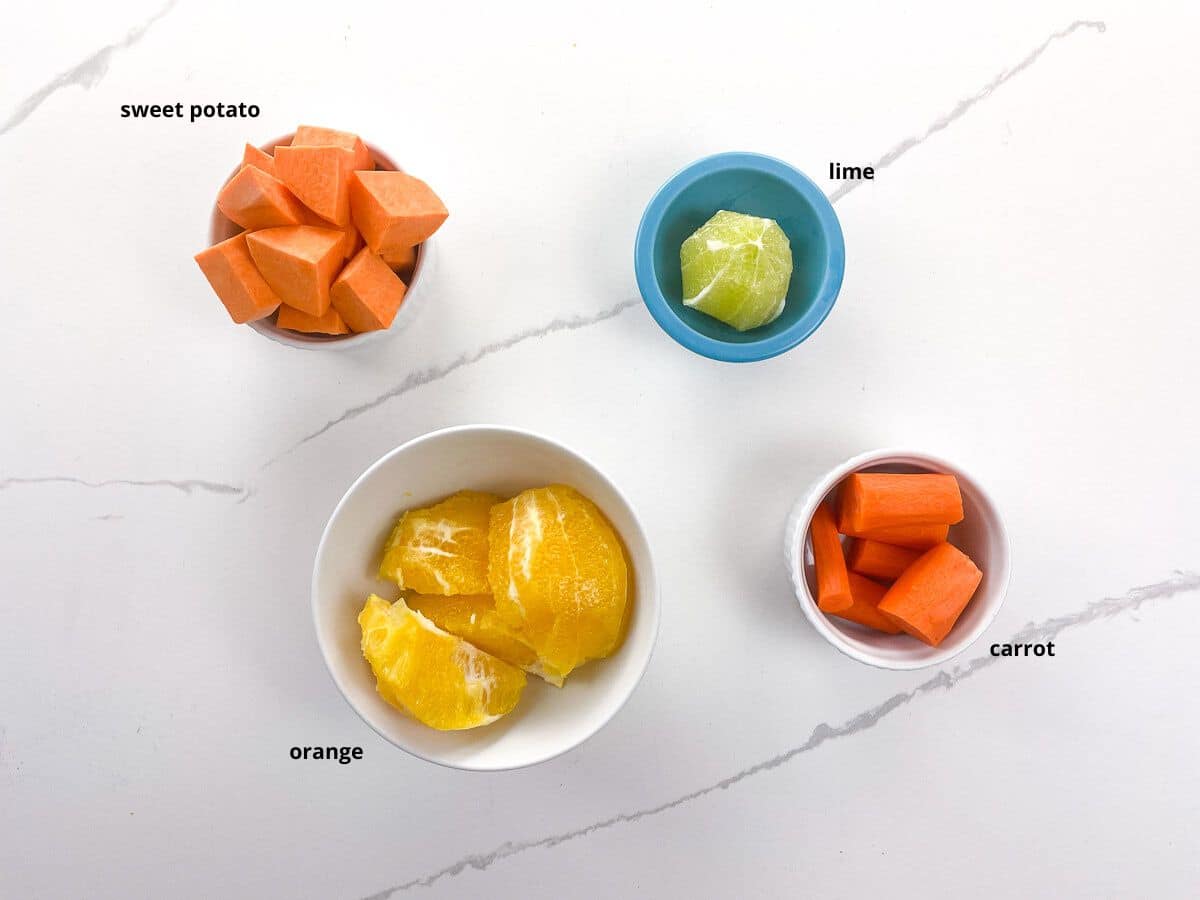
- Sweet potato may seem like an unusual addition to fresh juice, but it adds a lovely creaminess and mildly sweet flavor to this blend. You can use any variety that you like, including those sold as "yams" in many American supermarkets.
- Carrot is a popular juice ingredient for a reason. It's surprisingly sweet — often sweeter than the fruits in a juice blend — and surprisingly prolific. Plus, you can't beat the color.
- Use a good, juicy orange variety like Cara Cara.
- Lime adds an element of tanginess and freshness. You'll use a knife to cut off the peel and white pith and then put the rest of it through the juicer.
How to make it
Here's an overview of what you'll do to make a beautiful glass of sweet potato juice. You can see the steps in action in the video that accompanies this post, and get all the details in the recipe card below.
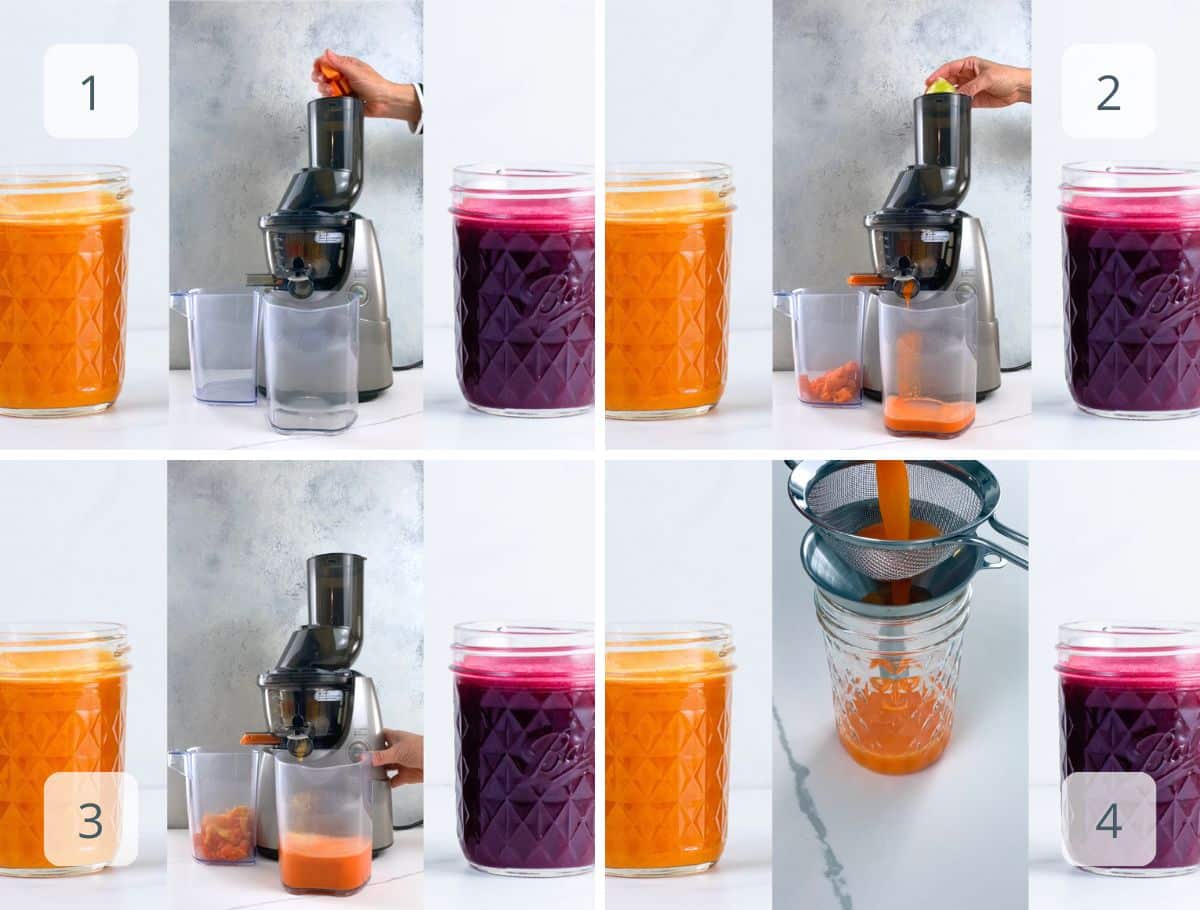
- Prep your ingredients. Some of the details will depend on the type of juicer you're using, but you should peel the sweet potato regardless. Feed it through the juicer.
- Add the carrot and then the lime.
- Finish with the orange. Its juiciness will help flush everything through the machine.
- Strain juice into a glass and serve. That's it!
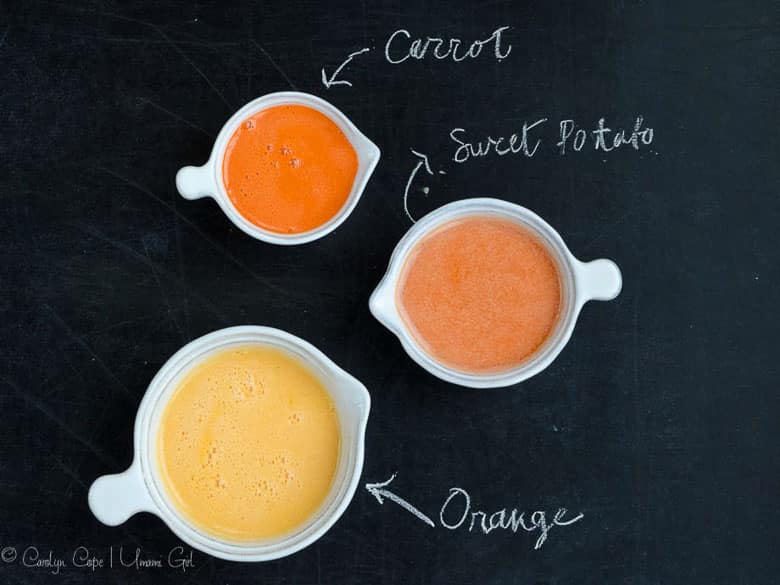
Expert tips and FAQs
For many years, I've used the Kuvings Whole Slow Juicer. It’s a masticating juicer (which I will remind you means CHEWING, you perv), so named to my great chagrin because it kinda chews up your fruits and vegetables before sending the juice through a strainer. This method does a good job preserving nutrients for a longer period of time and minimizing oxidation.
Before that, I used an earlier version of the Breville Juice Fountain, which is an excellent centrifugal juicer. This method wins the award for least terrible name, but it causes more oxidation, so the nutrients in your juice won't last as long.
Both kinds of juicers are totally great if you’d like to drink your fresh juice right away, but masticating juicers are better at preserving nutrients for up to a few days, in case you like to juice in batches.
As noted above, the nutrient retention in fresh juice has a lot to do with what kind of juicer you're using. If you have a centrifugal juicer, it's best to drink your juice fairly soon after you make it. With a masticating juicer, feel free to juice in larger batches. They'll keep well in an airtight container in the fridge (such as a quart-sized mason jar) for two to three days.
Juice can be frozen for longer storage, but you'll find that any remaining solid bits fall out of suspension and sink to the bottom after defrosting. I'm not personally a huge fan of the texture of defrosted juice, but if you're okay with it, freezing can be a good bet.
More fresh juice resources
Whether you're new to juicing or want to get next-level, I recommend reading my thorough post on Juicing for Beginners. It has all my best tips, tricks, and resources for your juicing regimen, whatever you'd like it to be.
And here are a few more favorite recipes for fresh juice that isn't green (though I've got lots of those, too):
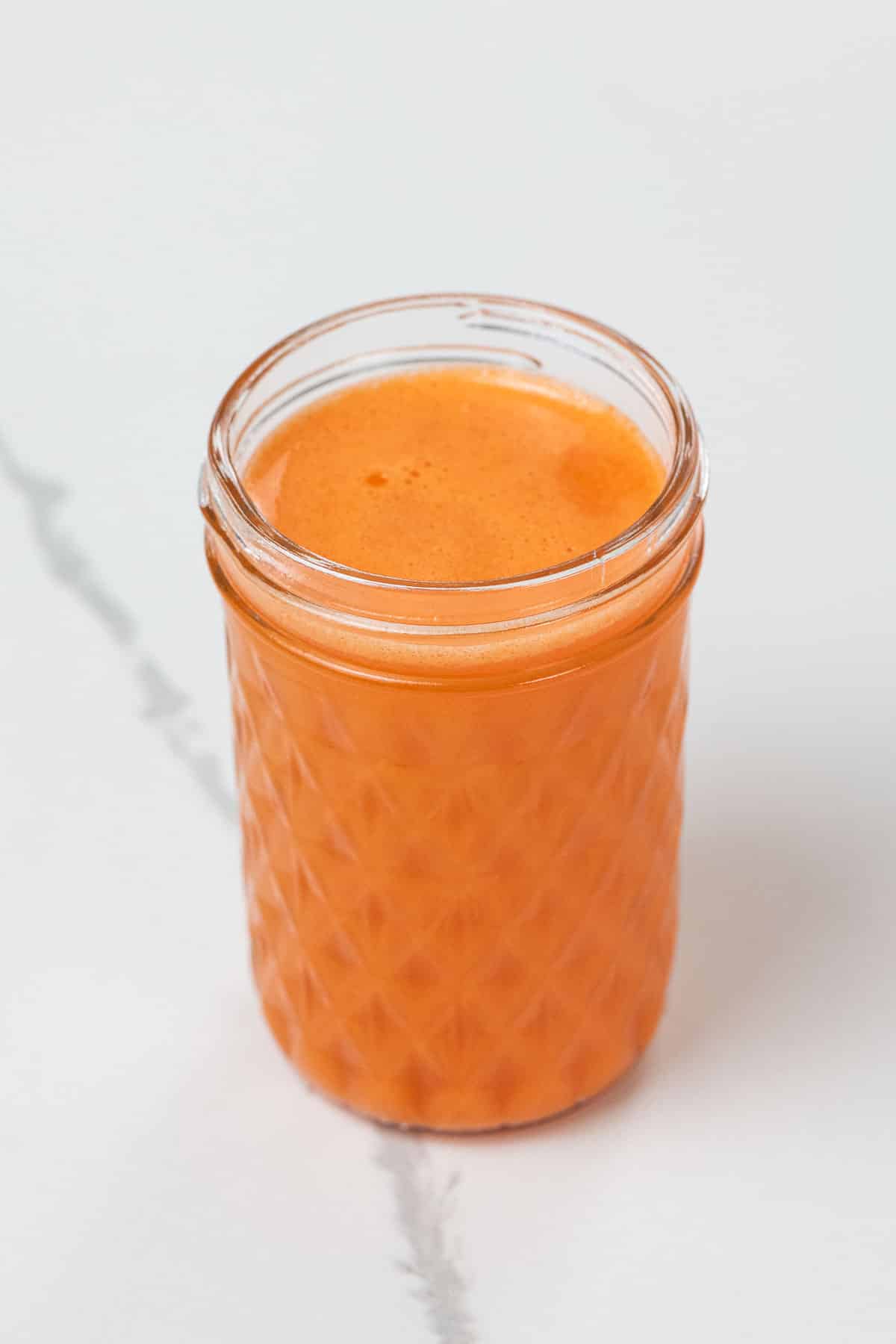
Hungry for more?
Subscribe to Umami Girl's email updates, and follow along on Instagram.
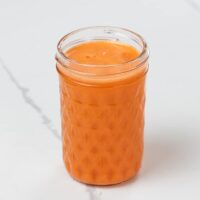
Sweet Potato Juice
Ingredients
- 1 small sweet potato (about 6 ounces/170 grams, peeled)
- 1 medium carrot (about 3 ounces/85 grams, trimmed)
- 1 lime (peel and pith removed)
- 1 medium orange (peel and pith removed (about 7 ounces/(200 grams) after peeling))
Instructions
- Juice ingredients in the order listed.
- Stir together well.
- Pass through a fine mesh strainer.
- Pour into a glass and serve.
Notes
- I use the Kuvings Whole Slow Juicer, a masticating juicer that juices pretty efficiently and preserves nutrients for a longer period than centrifugal juicers. You can make this recipe with any juicer.
- The nutrient retention in fresh juice has a lot to do with what kind of juicer you're using. If you have a centrifugal juicer, it's best to drink your juice fairly soon after you make it. With a masticating juicer, feel free to juice in larger batches. They'll keep well in an airtight container in the fridge (such as a quart-sized mason jar) for two to three days.
- Juice can be frozen for longer storage, but you'll find that any remaining solid bits fall out of suspension and sink to the bottom after defrosting. I'm not personally a huge fan of the texture of defrosted juice, but if you're okay with it, freezing can be a good bet.
Nutrition
Hungry for more?
Subscribe to Umami Girl's email updates, and follow along on Instagram.


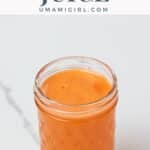
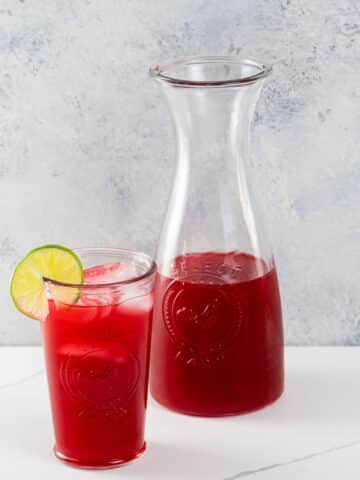
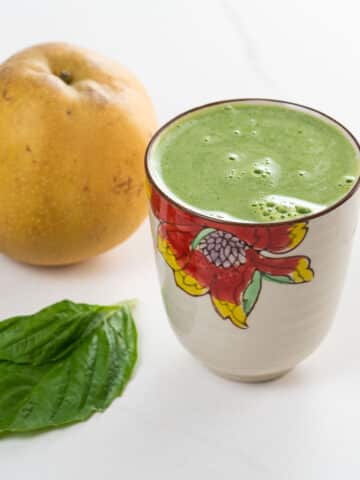
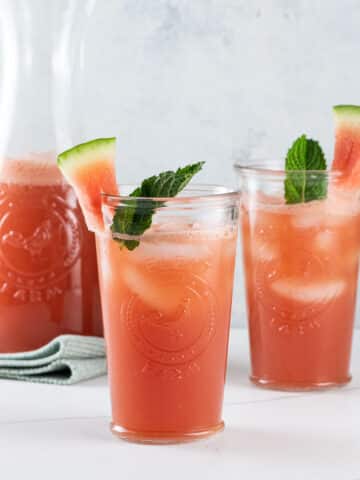
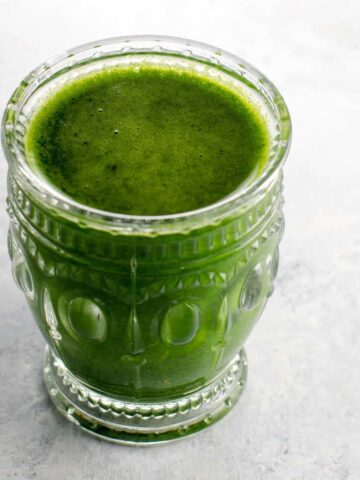

Anonymous says
Anonymous says